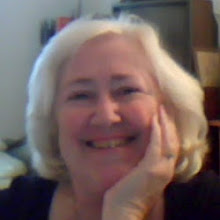Copyrights
Well, yesterday, I wrote to my 7 Secrets friends and asked this question:"As a writer, what's your biggest question about the business or mechanics of writing?"
Out of more than 200 people, only 5 asked questions. Oh, wait. No only 3 had legitimate questions that I could answer here. I really had hoped to give you what you're looking for, but nobody seemed to want to respond. If you didn't want to because of some technical reason, let me know why HERE. Yes, the site adds a cookie, but it's a nothing cookie. It only tells me that you've asked a question. No big deal, and you can delete it any time you want to.
OK...
So, the first question was:
"What do you do once you have written an ebook? Do you nave to copyright it? If so, how?"
No, you NEVER have to pay to have a copyright to anything you create, whether it’s for print or electronic publication. Why? Because the copyright laws in the United States, at least, say that once you’ve put your thoughts on paper or down in electronic form, you are the copyright holder, just by virtue of having created the material.
And don’t worry that someone will steal your work.
It’s a rarity and even if you hold a copyright, it’s very hard to prove in most instances. You have to trust. Don’t hold your words sacred because it marks you as an amateur.
Copyrights are instantaneous and here’s how long they last from the U. S. Copyrighting Office FAQs (http://www.copyright.gov/help/faq/faq-duration.html#duration):
The term of copyright for a particular work depends on several factors, including whether it has been published, and, if so, the date of first publication. As a general rule, for works created after January 1, 1978, copyright protection lasts for the life of the author plus an additional 70 years. For an anonymous work, a pseudonymous work, or a work made for hire, the copyright endures for a term of 95 years from the year of its first publication or a term of 120 years from the year of its creation, whichever expires first. For works first published prior to 1978, the term will vary depending on several factors. To determine the length of copyright protection for a particular work, consult chapter 3 of the Copyright Act (title 17 of the United States Code). More information on the term of copyright can be found in Circular 15a, Duration of Copyright, and Circular 1, Copyright Basics.
If you have more questions, here’s the place to go: http://www.copyright.gov/help/faq/
Please write to me with your questions, or complete the survey at http://ovweb.net/survey I’m ready, willing, and if I’m not able to help, I’ll find someone who can.
But I can’t do it, if you don’t ask, folks! Don’t be shy. I know when I first started to write, I had TONS of questions. Usually, they had more to do with the business end of writing, but I’m happy to answer those and questions from the creative angle, too.
I’ve been at this for 16 years now. I’m not self-published, as some might think. I have worked with 3 different publishers (even Dave Barry's) and you can find all of my books at Amazon.com. I’ve also written for magazines and newspapers. And I taught writing for children for more than 5 years for the Institute of Children’s Literature.
However, I never profess to know it all. I’m thinking of starting a series of interviews with different types of writers. I have one set up right now, and when it’s through, you’ll be invited to participate. I hope you will. We’ll touch on writing for the web, writing for newspapers, writing for magazines, and writing books. It will be great!
Stay tuned. I have lots to tell you! :-)





0 Comments:
Post a Comment
<< Home